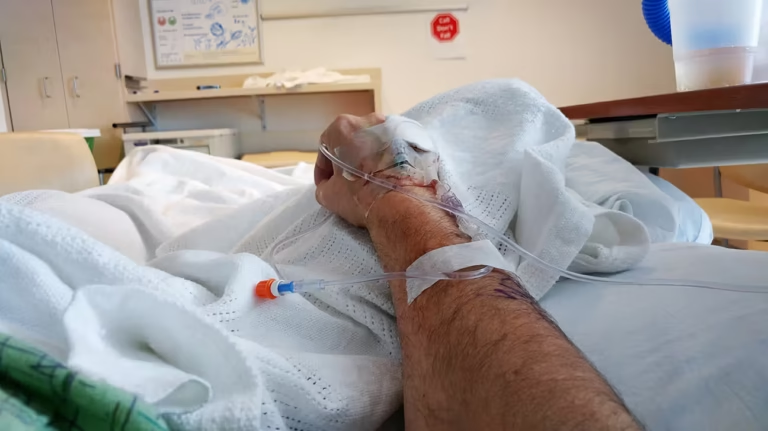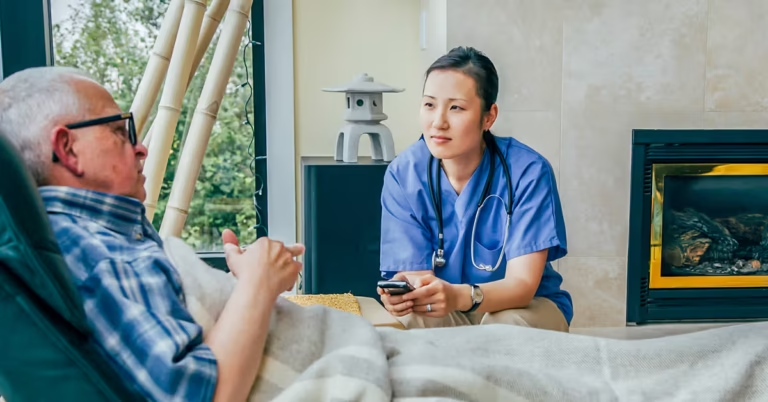Living with a cancer diagnosis is both emotionally and physically overwhelming. It’s common to experience a whirlwind of emotions — fear, sadness, anger, or even moments of hope and gratitude. These feelings are not a sign of weakness; they are part of the natural response to a life-changing event.
In this guide, we’ll walk you through common emotional reactions, healthy coping strategies, and practical tips for both patients and their loved ones.
Common Emotional Responses After a Cancer Diagnosis
No two people experience cancer in the same way. Emotional Stages of Cancer may shift from day to day or even hour to hour.
1. Fear & Anxiety
Cancer often brings uncertainty — about health, treatment, finances, and the future. This fear can trigger anxiety or even panic attacks. Recognizing these feelings and seeking emotional support early can make a difference.
💡 Helpful Resource: National Cancer Institute – Coping with Cancer
2. Sadness & Depression
Sadness is a natural reaction to potential changes in health and lifestyle. However, persistent sadness, low energy, and loss of interest in activities may indicate major depressive disorder (MDD). Professional help can provide relief and improve quality of life.
📌 Internal Link: Shop Cancer Support Medicines
3. Loneliness
Even with family nearby, cancer can feel isolating. Some friends may distance themselves out of discomfort, leaving patients feeling emotionally alone.
4. Anger
Anger is a valid and common reaction. It often stems from the sudden life changes and challenges cancer brings.
5. Guilt & Regret
Patients may feel guilt about burdening loved ones or regret about past lifestyle choices. These feelings, though common, can be eased through self-compassion and counseling.
6. Resentment
It’s natural to ask, “Why me?” Resentment can arise when comparing one’s struggles to others’ seemingly normal lives.
7. Grief
Cancer may trigger grief for lost health, independence, or future plans. This grief can be a mix of sadness, fear, anger, and regret.
8. Positive Emotions
Hope, joy, and gratitude can still be present during cancer treatment. Cherishing these moments can provide strength.
Coping Mechanisms – Positive vs. Negative
Coping mechanisms are strategies to handle emotional stress.
Positive Coping Strategies
- Social Connection: Stay in touch with supportive friends, family, or cancer support groups.
- Cognitive Acceptance: Acknowledge your thoughts and feelings without judgment.
- Positive Thinking: Focus on the good in life, even in small ways.
- Spirituality: Lean on faith or spiritual beliefs for comfort.
- Emotional Expression: Keep a journal, create art, or talk openly about your feelings.
Negative Coping Strategies to Avoid
- Avoiding medical appointments
- Isolating from loved ones
- Fatalistic thinking (“Nothing can be done”)
- Substance misuse or overeating
📌 Internal Link: Supplements to Support Emotional Wellness
Practical Tips for Healthy Coping
- Be Patient: Accept that all emotions — even anger or sadness — are valid.
- Seek Joy: Make time for hobbies, laughter, and quality time with loved ones.
- Control What You Can: Maintain a healthy diet, follow your treatment plan, and stay active when possible.
- Be Honest About Feelings: Sharing emotions helps release their weight.
- Accept Help: Allow loved ones to assist with daily tasks — it’s not a sign of weakness.
💡 External Resource: American Cancer Society – Coping with Emotions
Reaching Acceptance
Acceptance is not “giving up.” It’s about understanding your new reality and focusing on what you can control. Studies show acceptance reduces anxiety and depression in cancer patients.
Tips for Family Members
Supporting a loved one with cancer requires patience, empathy, and understanding.
- Offer help while respecting boundaries
- Listen without judgment
- Learn about the emotional impact of cancer
- Celebrate small victories
- Encourage professional counseling
Remember: caregivers also need self-care to avoid burnout.
📌 Internal Link: View Our Immune-Boosting Products
Final Takeaway
The emotional stages of cancer are deeply personal. Whether you’re feeling fear, anger, hope, or gratitude, each emotion has its place in the healing journey. By practicing healthy coping strategies, leaning on your support system, and embracing moments of joy, you can navigate this challenging chapter with resilience.
























